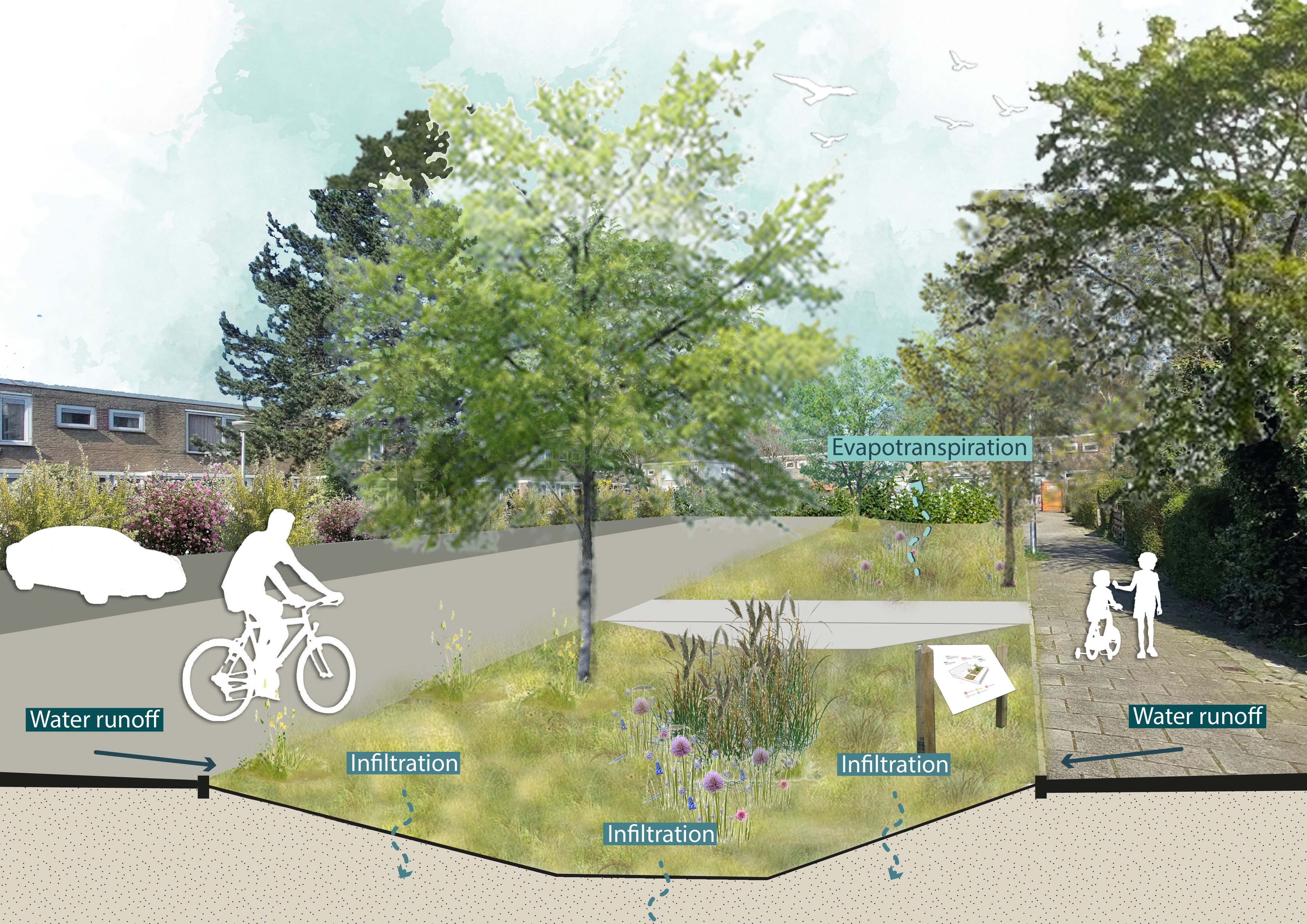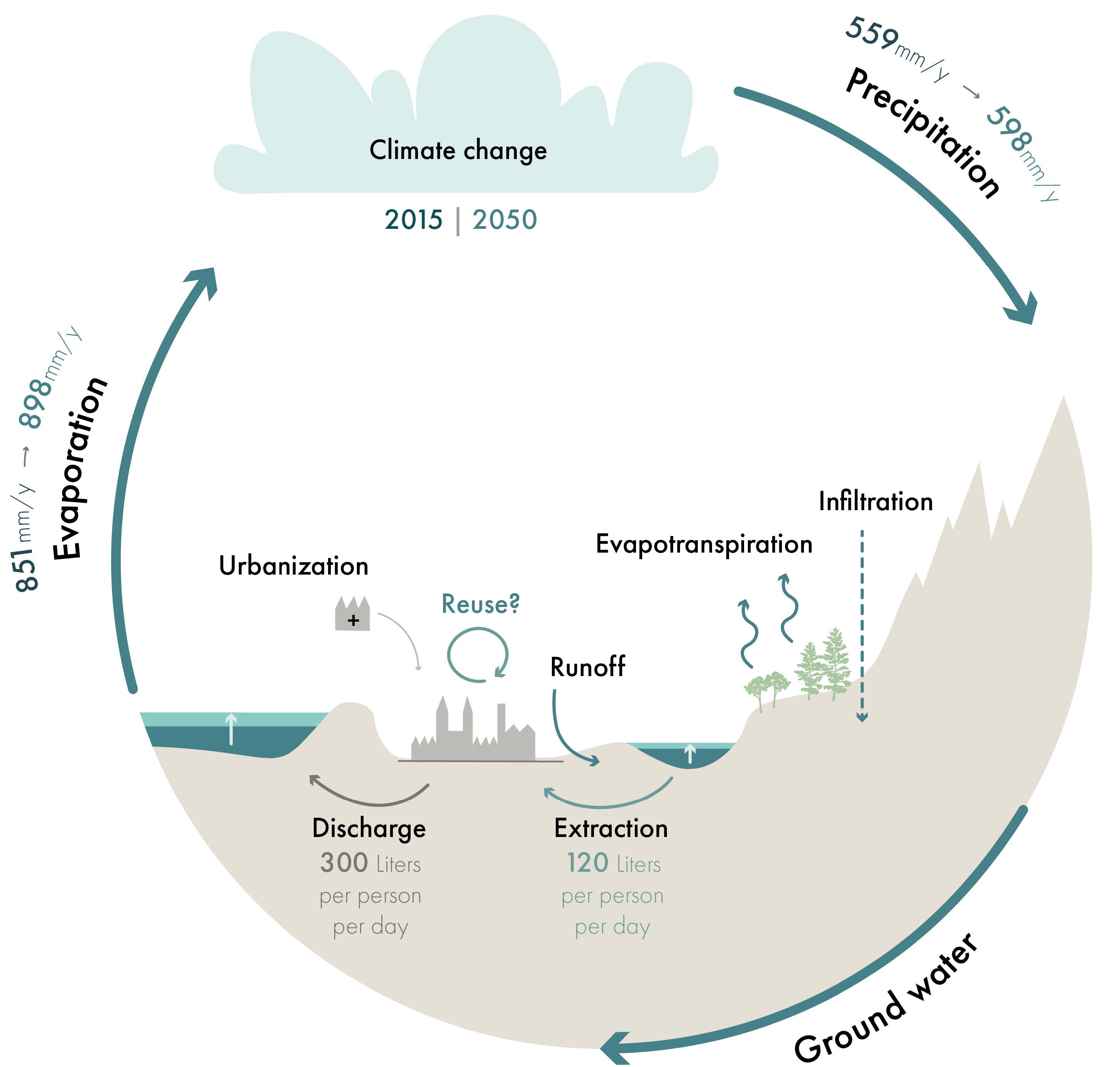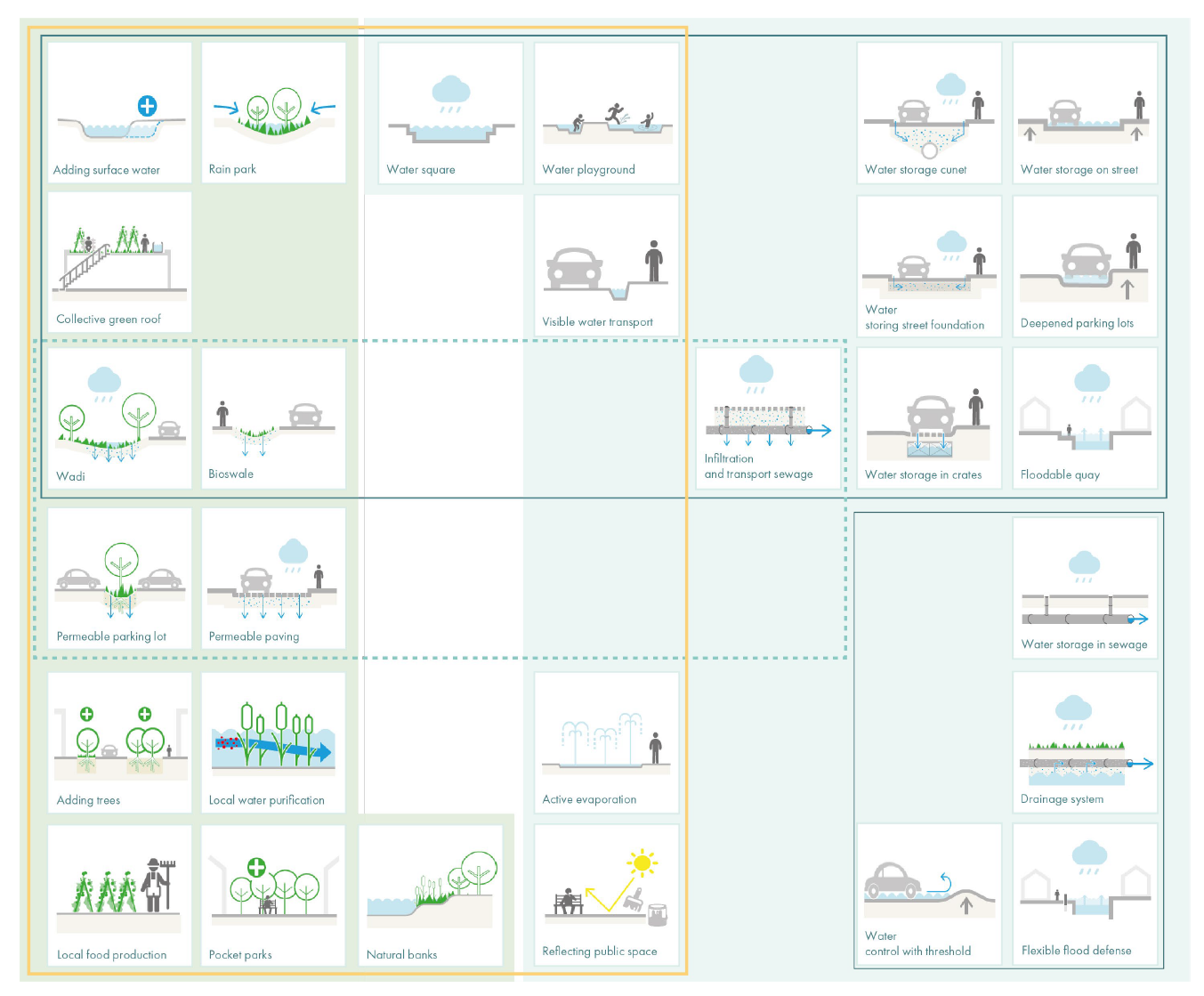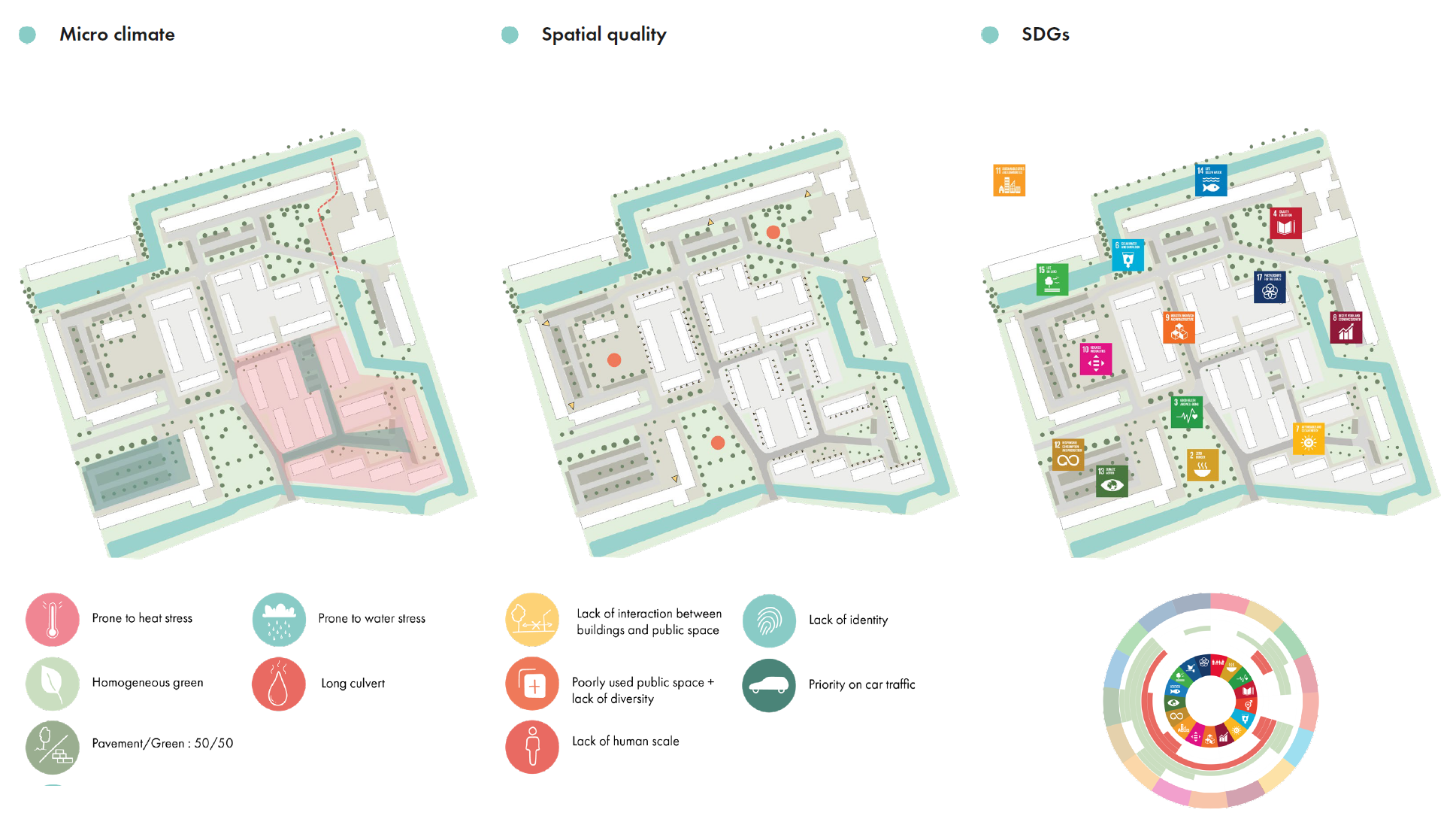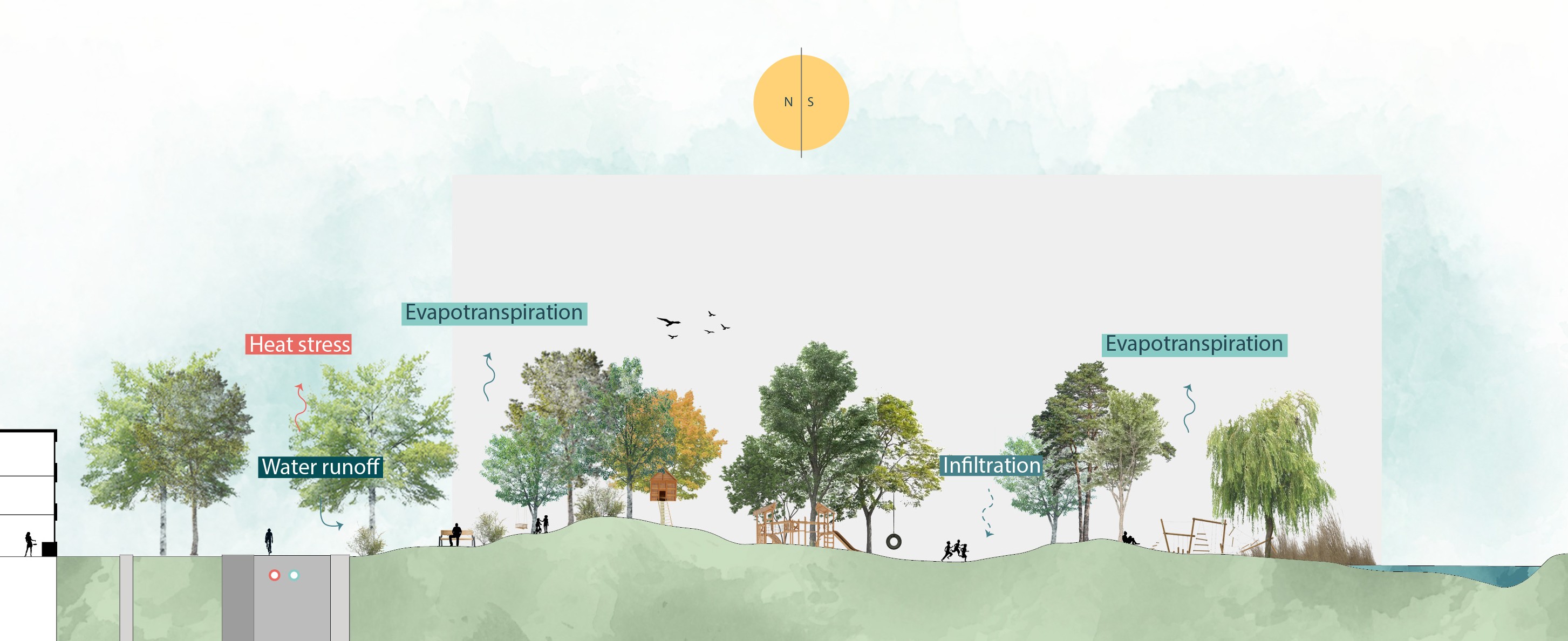Water sensitive sustainable urban adaptation: Climate adaptation in existing Dutch neighborhoods | a case study in Delft
Student: Anne Leltz
Mentors: Kristel Aalbers, F.D. van Loon
Program: MSc Urbanism
Graduation date: 01-07-2021
Abstract
This project answers the research question “How can we design with climate adaptation measures in existing neighborhoods in the Netherlands while respecting other aspects of sustainable development?” The methods used to carry out the research are mixed methods. Both deductive and inductive research is done. Theory describes the problem, and existing solutions and methods used, to do research. Through research by design, site specific problems are offered solutions. Later on, by linking the specific sites to the general theory, more general solutions are formed based on the design. This approach is chosen, because, by combining deductive and inductive research more general solutions can be found in a design on a small scale. This is necessary for this research because the problem is too big and very site specific to be solved from deductive research only. Lessons learnt are needed from practical examples to take steps towards answering the research question as a whole. The project location for the research by design is the Abtswoudse polder in Delft. It is a diverse polder with many different neighborhood types. For the design part, one neighborhood selected based on the climatic and liveability problems and neighborhood type. One design location is worked out, due to the potential of the location because of the liveability and amount of public space. The research is set up in such a way that the method and selection used can be transferred to other locations in the Abtswoudse polder but also to other locations in the Netherlands. The designs are guided by general design principles based on the three main design tools in this project: climate adaptation measures, liveability criteria and sustainable development goals. The answer to the main research question is: by setting up a framework with design tools that consist of the components: climate adaptation, spatial design and sustainable development. By using the tools to find the overlap between them, and make general design principles to make insightful how they have influenced the design interventions, we can design with climate adaptation measures in existing neighborhoods in the Netherlands while respecting other aspects of sustainable development.
Subject
Climate Adaptation
Sustainable Development
Liveability
Nature-based Solutions
Climate Change
Sustainability
Delft

